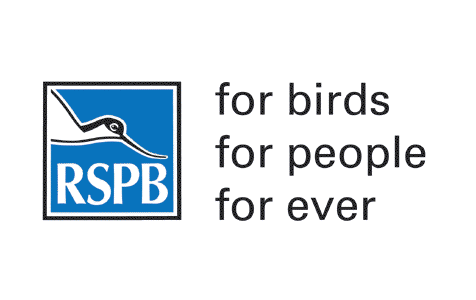The Royal Society for the Protection of Birds (RSPB) is a charitable organisation registered in England and Wales and in Scotland. It was founded as the Plumage League in 1889 by Emily Williamson. It works to promote conservation and protection of birds and the wider environment through public awareness campaigns, petitions and through the operation of nature reserves throughout the United Kingdom.
The RSPB has over 1300 employees, 18 000 volunteers and more than 1 million members (including 195,000 youth members), making it the largest wildlife conservation charity in Europe. The RSPB has many local groups and maintains 200 nature reserves.
History
The Plumage League was founded in 1889 by Emily Williamson at her house in Didsbury, Manchester, (now in Fletcher Moss Botanical Garden), as a protest group campaigning against the use of great crested grebe and kittiwake skins and feathers in fur clothing. The group gained popularity and eventually amalgamated with the Fur and Feather League in Croydon to form the RSPB.
The original members of the RSPB were all women who campaigned against the fashion of the time for women to wear exotic feathers in hats, and to this end the Society had two simple rules:
- That Members shall discourage the wanton destruction of Birds, and interest themselves generally in their protection
- That Lady-Members shall refrain from wearing the feathers of any bird not killed for purposes of food, the ostrich only excepted.
— RSPB rules, 1899
At the time of founding, the trade in plumage for use in hats was very large: in the first quarter of 1884, almost 7,000 bird-of-paradise skins were being imported to Britain, along with 0.4 million birds from West India and Brazil, and 0.36 million birds from East India.
The Society attracted support from some women of high social standing who belonged to the social classes that popularised the wearing of feathered hats, including the Duchess of Portland (who became the Society’s first President) and the Ranee of Sarawak. As the organisation began to attract the support of many other influential figures, both male and female, such as the ornithologist Professor Alfred Newton, it gained in popularity and attracted many new members. The society received a Royal Charter in 1904 from Edward VII, just 15 years after its founding, and was instrumental in petitioning the Parliament of the United Kingdom to introduce laws banning the use of plumage in clothing.
At the time that the Society was founded in Britain, similar societies were also founded in other European countries. In 1961, the society acquired The Lodge in Sandy, Bedfordshire as its new headquarters.
Finances
The RSPB is funded primarily by its members; in 2006, over 50% of the society’s £88 million income came from subscriptions, donations and legacies, worth a total of £ 53.669 million. As a registered charity, the organisation is entitled to gift aid worth an extra £0.28 on every £1.00 donated by income tax payers. It also receives contractual payments from clean energy utilities and financiers of renewable energy solutions, when its members sign up as clients. The bulk of the income (£63.757 million in 2006) is spent on conservation projects, maintenance of the reserves and on education projects, with the rest going on fundraising efforts and reducing the pension deficit, worth £19.8 million in 2006.
Discover more from LandmarkLocation.com
Subscribe to get the latest posts sent to your email.


